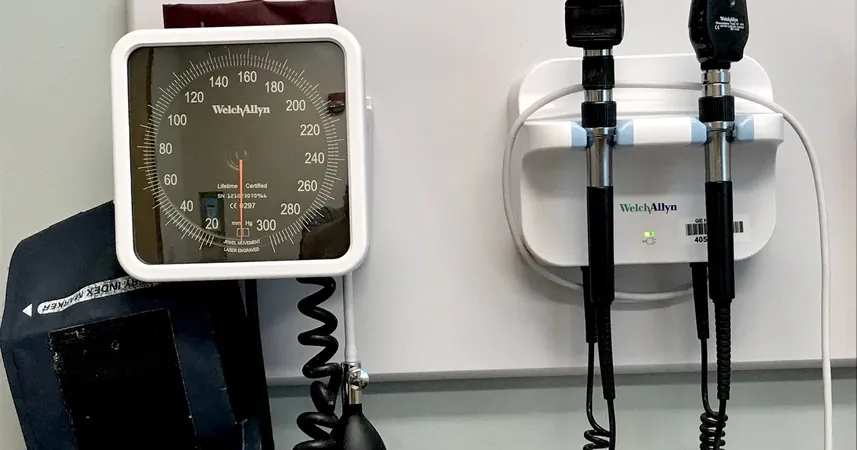
Surprising Link Between Early Pregnancy Blood Pressure and Long-term Hypertension Risk
2025-04-02
Author: Nur
Groundbreaking Study Insights
A groundbreaking study reveals that early pregnancy blood pressure patterns could predict hypertension risk for years after giving birth. This research, published in the American Heart Association Journal Hypertension, sheds light on how monitoring blood pressure in the early stages of pregnancy can aid in stratifying risk and enhancing early interventions for women.
Study Findings
The findings are particularly striking: blood pressure trajectories during the first half of pregnancy, even in women without hypertensive disorders of pregnancy (HDP), are indicative of future hypertension. Researchers found that women exhibiting higher-risk blood pressure patterns—specifically those with elevated-stable levels in early pregnancy—were 11 times more likely to develop hypertension up to 14 years post-delivery compared to those with healthier patterns.
Research Overview
Funded by the National Institutes of Health (NIH), this extensive observational study tracked the health records of 174,774 women from Kaiser Permanente Northern California between 2009 and 2019. Importantly, these women had no prior history of hypertension, kidney, liver, or heart diseases, nor did they experience preeclampsia before their pregnancies.
Blood Pressure Patterns
The study pinpointed specific blood pressure trends within the first 20 weeks of pregnancy that were strong indicators of later health issues. The researchers categorized these patterns into six distinct risk groups, ranging from ultra-low to elevated-stable. The findings suggest that women with elevated-stable patterns are particularly at risk, emphasizing the need for healthcare providers to identify these individuals early on.
Implications for Women's Health
This vital research not only highlights a previously unrecognized group of postpartum women—those who did not develop HDP yet remain vulnerable to future hypertension—but it also opens the door for more tailored healthcare approaches. By proactively monitoring these blood pressure patterns, healthcare professionals can implement targeted surveillance and interventions that may help prevent the onset of serious cardiovascular diseases.
Conclusion
With cardiovascular health being a significant concern for women, this research underscores the importance of early awareness and intervention. As more studies unfold, the hope is that such proactive measures can lead to healthier outcomes for women long after their pregnancies. Stay tuned, as this revelation could change the way women's health is approached in the medical community!






 Brasil (PT)
Brasil (PT)
 Canada (EN)
Canada (EN)
 Chile (ES)
Chile (ES)
 Česko (CS)
Česko (CS)
 대한민국 (KO)
대한민국 (KO)
 España (ES)
España (ES)
 France (FR)
France (FR)
 Hong Kong (EN)
Hong Kong (EN)
 Italia (IT)
Italia (IT)
 日本 (JA)
日本 (JA)
 Magyarország (HU)
Magyarország (HU)
 Norge (NO)
Norge (NO)
 Polska (PL)
Polska (PL)
 Schweiz (DE)
Schweiz (DE)
 Singapore (EN)
Singapore (EN)
 Sverige (SV)
Sverige (SV)
 Suomi (FI)
Suomi (FI)
 Türkiye (TR)
Türkiye (TR)
 الإمارات العربية المتحدة (AR)
الإمارات العربية المتحدة (AR)